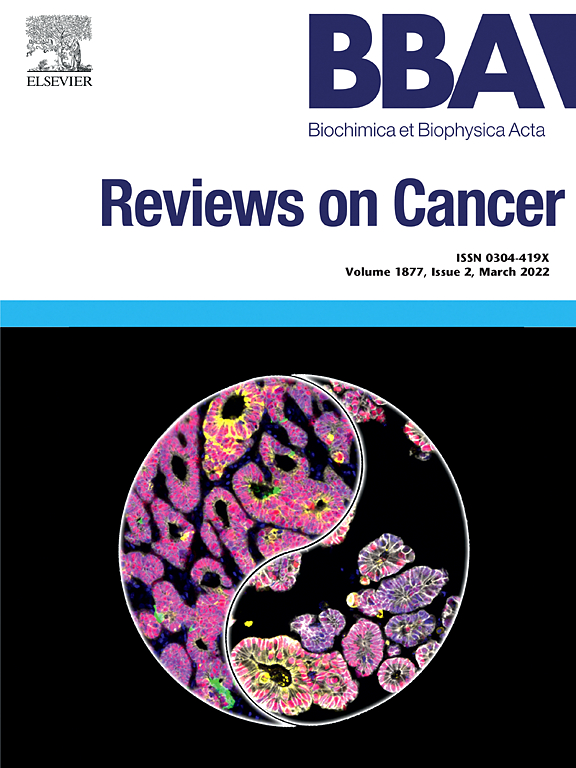Selected cover image of BBA Reviews on Cancer for 2022

Research from the Lothe lab is featured on the cover image for BBA Reviews on Cancer for the whole calendar year of 2022, accompanied by an Editorial article (Kryeziu K, Bergsland CH, Guren TK, Sveen A, Lothe RA, Biochim Biophys Acta Rev Cancer 2022;1877:188682).
The Lothe lab has established a platform for culturing and pharmacogenomic analyses of patient-derived tumor organoids of colorectal cancer liver metastases (Bruun et al., Clin Cancer Res 2020;26:4107-19 and Kryeziu et al., J Transl Med 2021;19:384). Organoids are three-dimensional structures grown from malignant cells in the tumors, and can recapitulate the genomic make-up and morphology of the original lesion.
The cover image portrays the “yin and yang” complementarity of a clinical specimen and its ex vivo organoid model, illustrated by their corresponding histopathological profiles (fluorescent immunohistochemistry of diagnostic protein markers). More than 100 solid tumors (liver metastases) have so far been included in the “living biobank”. The organoids are compared with the parental tumors for complementarity of genomic and transcriptomic profiles, as well as by matching of morphology using multiplex immunohistochemistry and digital image analyses.
Organoids are powerful tools in translational cancer research and have a great potential also in precision medicine. Currently, precision oncology is primarily based on cancer genome profiling. This is beneficial to a small subgroup of patients. Most cancer patients do not have “actionable” genetic aberrations or develop resistance to available therapies. Tumor organoids are amenable to drug sensitivity screening and provide a complementary approach to precision medicine. “Co-clinical” studies have shown that organoids can model clinical treatment responses, and the ambition is to develop organoids into a prospective treatment decision tool. That is, to select treatments for patients based on the measured drug sensitivities of their own tumor cells. We have recently opened an intervention trial (EVIDENT; EudraCT no 2020-003395-41; PI:TK Guren) to test this strategy in metastatic colorectal cancer. The established “living biobank” screened for sensitivity to a range of anticancer agents will serve as a reference dataset to evaluate the “actionability” of results from prospective patients in this trial.
Links:
The Editorial article:
Multiplex immunohistochemistry of metastatic colorectal cancer and ex vivo tumor avatars.
Kryeziu K, Bergsland CH, Guren TK, Sveen A, Lothe RA.
Biochim Biophys Acta Rev Cancer. 2022 Jan;1877(1):188682. doi: 10.1016/j.bbcan.2022.188682. Epub 2022 Jan 20.
PMID: 35065193
Ragnhild A. Lothe's Genetics Group
Department of Molecular Oncology
